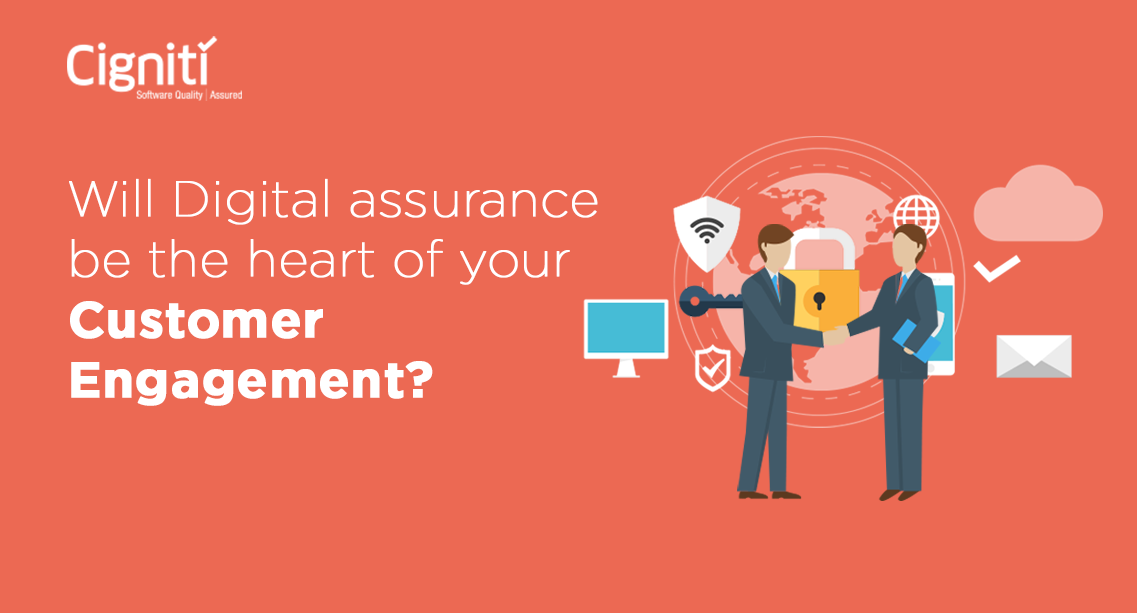Can Digital Assurance and Testing make Retail more Futuristic?
The retail sector has always bet on gauging consumer preferences and building an inclusive strategy to further nurture these choices. This sector has been one of the most dynamic domain among all. The challenge has been to cut the competition and deliver innovative experiences to the customers. Digital Technologies and overall digitization in retail has empowered the sector to bring added value to its customers. However, this mandate to get futuristic has built up tremendous pressure on retail players and has triggered the need for a robust Quality Assurance strategy. While it holds true, how can the retail sector get more futuristic with Digital Assurance and Testing?
Along with a technology shift, retail is especially about cultural shift that is happening right around us, and at a pace that cannot be defined.
Gauging the Millennial shift
Leslie Ghize, EVP of TOBE, a trend forecasting firm, states, “According to National Geographic, by 2050, over half the U.S. population will be multiracial,” which makes these young people much more open to adapting to a different kind of world around them. Ghize says, “Millennials wanted to see new places so they can post about it on social media. Gen Zs travel to feed their interest in learning about other cultures. But Gen A will be citizens of the world, immersing themselves in the places and people they visit.”
Understanding the cultural cult and translating it into an experience can be possible by engaging the right digital technologies. It is equally critical to confirm its relevance and value for the business at large. This can be possible by building the required Digital Assurance and Software Testing strategy. Security and accessibility of the applications and the technology is very much critical, which will also estimate the RoI.
According to Crisil, going by the 2016-17 data, the e-retail market represents about 1.5 per cent (Rs 70,000 crore) of the overall Rs 49 trillion retail sector in the country (India), indicating enormous growth potential. The online shopping segment has trebled over the past three fiscal years on rising Internet penetration, awareness of online shopping as well as lucrative deals and discounts. The report further stated that the E-retail market size is expected to surge 250 per cent in the next three years.
Reports such as these for any region, country, or market estimate the trending market dynamics and create a path for budding as well as established retailers. Testing new and enabling technologies becomes critical, which could be introducing chatbots for a customer friendly set-up, or it could be building applications with Augmented Reality, getting Contactless shopping strategy in place, and much more.
The year 2017 has been estimated as the worst year for brick-and-mortar retailing, however, it can be an era that redefines the sector for creating more engaging experiences. A report by retail think-tank Fung Global Retail & Technology states, ‘By December, more than 6,985 stores closed across the US. This translates into over 200 percent than the previous year’s finding.’
A lot has been spoken about technologies that can revamp the sector, namely, Artificial Intelligence, Facial Recognition, Blockchain, Big Data, and so on. The list for super-digitization can be truly intimidating and overwhelming. However, what matters is to rightly comprehend its relevance and application for the sector. Quality Assurance and Testing has been adding value for all big and small enterprises by fitting in the right technology proposition for their business.
So, what makes Digital Assurance and Software Testing imperative for Retail? Let’s have a look.
Enhancing Customer Experience
The ultimate objective for any venture is to offer enhanced customer experience by applying technology that is more engaging and interactive. For instance, chatbots can enable automation, which will bring down the human element and make things faster and mechanical. However, will chatbots become personal shoppers for the customers? Seems doubtful!
Hence, it is critical to estimate the objective of the digitization process for any business format. Digital Assurance will eventually help you to validate whether all these factors integrate and solve the ultimate business objective. Customer experience is at the core of any Digital Transformation process, which more or less clarifies the end objective for the retail sector.
Integration of Services
Omnichannel experience is business-critical in retail. Especially, if the retailer has both online and offline (brick-and-mortar) presence, it is indispensable to offer uniformity in experience. Hence, it is important to test integration of services across local platforms, private and public Cloud as well. The retail application is expected to operate across various devices, across different configurations, and under different pressures that could be related to the network or spikes in traffic.
Digital Assurance helps to validate that the application performs effectively and integrates well across any and every platform to offer unanimous experience to the users. The application could be installed within the store premises or could be downloaded on a handset, but the experience has to be undisputed.
Ensure end-to-end workflow
Big Data and Analytics helps retailers to know their customers better and offer the much needed experience. Hence, it is important to facilitate smooth workflows and synchronize seamless flow of data and services. With end-to-end testing, development teams can confirm that the data flows as expected within an application or a digital display.
For instance, if it is a multi-city or a multi-country retail brand, the displays have to seamlessly run for the respective regions as planned. Any interchanging or disruption can cause major reputation loss. What if an offer in one country is displayed in another country, it can lead to chaos and business loss for the brand.
Digital Assurance helps to validate the flow of data and ensures a secure disaster management route as well. In a way, it offers consistency of solutions across a range of channel interfaces such as mobile, social, and traditional systems as well.
In Conclusion
As you can feel it and gauge from the statistics, the global e-tailing market is growing phenomenally. Various reports suggest how the Millennials are driving the growth and it is no longer about heavier price tags, but about the experience that the brand offers across diverse platforms. Interestingly, a report by Deloitte suggests, “Consumers no longer consider a product premium based on just a high price tag. Globally, less than one-third, or about 31 percent of the consumers consider a product premium only because it is expensive, pointing to a clear demand for value-for-money emerging amongst the younger consumers.”
Retailers of all shapes and sizes are definitely up for a challenge to understand consumer preferences and project their agenda, and drive growth. Digital platforms are the biggest facilitators, and Digital Assurance and Testing is critical to ensure that the perception is established effectively.
Cigniti’s Digital QA service helps organizations across diverse sectors in their Digital initiatives.
Connect with us to leverage Cigniti’s methodologies, techniques, and specialists, ensure that the apps are thoroughly validated for User Experience (UX) and cover responsive web design patterns, screen resolutions, accessibility, usability, content, navigation, etc.





Leave a Reply